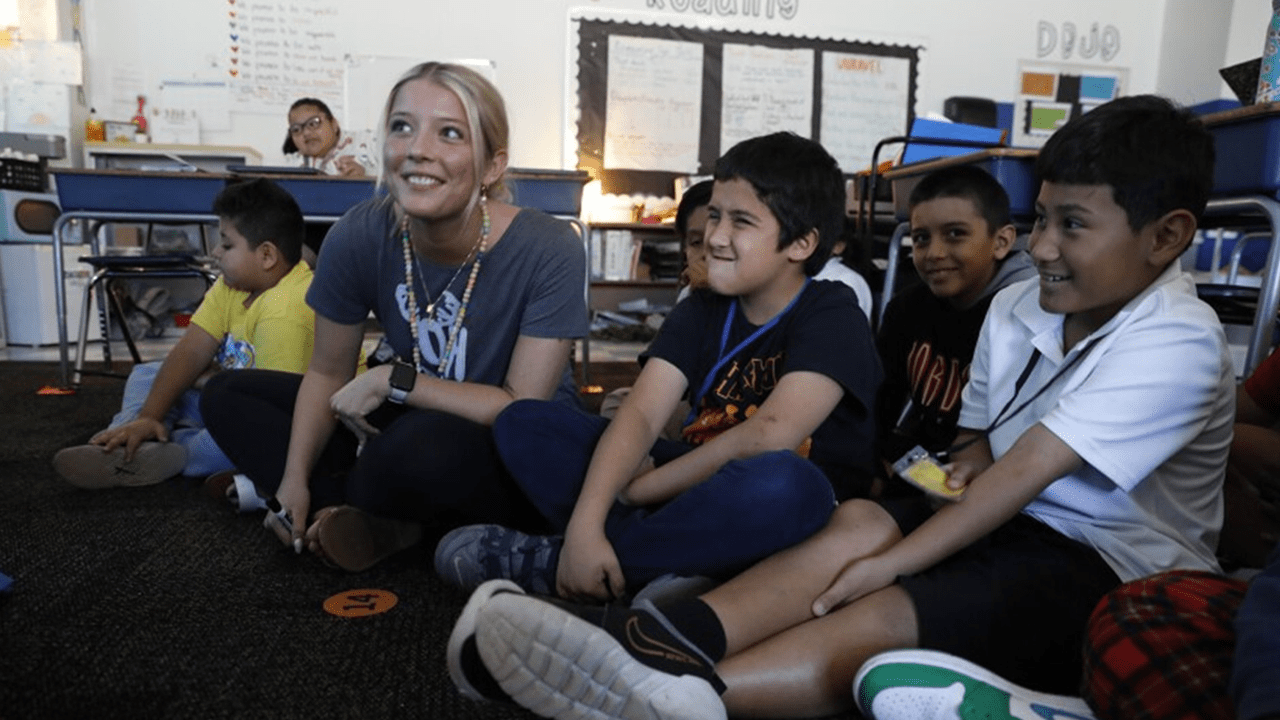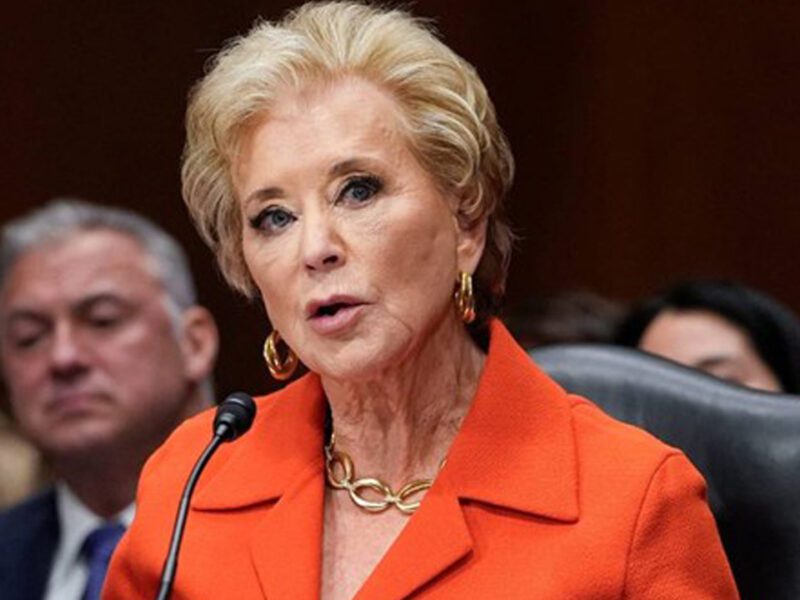More time in the classroom, plus a paycheck: How USF prepares elementary teachers
WLRN | By Yvonne Bertucci zum Tobel | June 4, 2024
The lights are off in this fourth-grade classroom, and Sydney Melvin is opening the blinds.
Sunlight has a calming effect and helps her students focus, Melvin explains.
“Sometimes we’ll open the windows and get natural light in, just because the fluorescents can be kind of harsh on us, and on them, for sure,” she said.
On this Thursday morning in January, Melvin is working as an intern at Daughtrey Elementary School in Bradenton. She’s a senior at the University of South Florida Sarasota-Manatee, and this internship is one of the required clinical experiences she must complete as part of the undergraduate education program.
It’s literacy week, and Melvin is wearing pajama pants to encourage her students to cozy up with a good book.
“I’m the teacher who’s on the floor with them, writing their homework with them,” she said. “I’m dressing up, because I want this to be a fun space for them, so I really prioritize that, for sure.”
This full-time internship with the School District of Manatee County — which began paying interns last year, at $15 an hour — is an example of how public universities and school districts in Florida are working together to try to mitigate the ongoing and pervasive teacher shortage.
Throughout the state, there are more than 4,000 open teaching positions — and elementary schools teachers are among the hardest to recruit.
In our monthslong statewide reporting project Role Call, WLRN is doing a deep dive on government-funded incentive programs that aim to reverse the trend, to evaluate if they’re making a difference.
Together, USF and Manatee County schools utilize paid classroom experience as a tool to prepare and inspire new teachers. It’s funded by the school district.
“If you want to train teachers for the profession and then also have them stay, they need to understand the realities of their work environment,” said Cheryl Ellerbrock, dean of education for USF’s Sarasota-Manatee campus.
“You have to prepare those individuals in the field just like you would prepare the nursing profession in the field. … We have a clinical space that we need to engage with and work with hand-in-hand, and that takes partnerships with school districts and the community to make that happen.”
This partnership takes a “grow your own” approach, in hopes that students like Melvin will stay and teach in Manatee County upon graduation.
In 2023, at least eight out of 10 students who participated in the paid internship program stayed in the district.
From ‘the assistant’ to ‘Miss Melvin’
It wasn’t until sophomore year of college that Sydney Melvin decided teaching would be her career. But she always knew she wanted to help people.
“And as I matured and got older, I was thinking about, what can I do that would have the biggest impact on my community, as well as the youth?” she said.
She tried babysitting and working at camps that serve students with special needs.
“My love for children just grew through that, and that’s how I ended up here,” she said.
She is excited about her future in the classroom, but others haven’t always shared in that excitement.
“I think teaching definitely has a stigma around it,” she said. “You say you want to be a teacher, and the next question is: Why? Even sometimes with people who are already teachers, when I tell them I am pursuing education, there is the why?
“I try not to let the comments about money or, like, ‘find a rich husband’ get to me, because I know this is definitely where I’m supposed to be,” she said.
In a survey conducted by WLRN of more than 100 education majors at public colleges around Florida, 55% said someone had discouraged them from becoming a teacher. The survey included responses from students in USF’s College of Education as well as those enrolled at Miami Dade College and Palm Beach State College.






